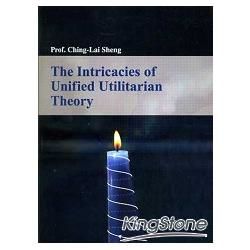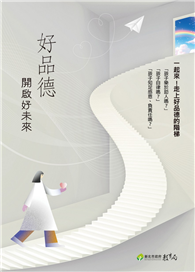| FindBook |
|
有 1 項符合
Prof. Ching-Lai Shen的圖書 |
 |
$ 425 ~ 475 | The Intricacies of Unified Utilitarian Theory(平)
作者:Prof. Ching-Lai Shen 出版社:國立交通大學 出版日期:2010-03-01 語言:英文 規格:平裝 / 322頁 / 23*17cm / 普級 / 單色印刷 / 初版  共 5 筆 → 查價格、看圖書介紹 共 5 筆 → 查價格、看圖書介紹
|
|
|
This book is an extensive and intensive refinement of the unified utilitarian theory (UUT) first proposed by the author in 1991. It is extensive in that UUT is not restricted to be an ethical theory, but can be extended to distributive justice, which is a part of philosophy of economics, and to all other public actions in political, legal, and social philosophy. It is intensive in that the profundity of the theoretical foundation of utilitarianism is deepened to the roots of utilitarianism in utility theory and theory of value. In other words, utilitarianism is regarded as a general, comprehensive, and coherent theory of optimization, for all human actions, moral or nonmoral, personal or public. There have been many objections to utilitarianism raised by non-utilitarians and also many difficulties with utilitarianism felt by economists. I call all of them difficulties and have proposed measures in UUT to surmount all these difficulties. Then I use a slightly different approach. I search for the crucial features of UUT which distinguish UUT from all other forms of utilitarianism and are also advantages of UUT over other utilitarian theories. I have found six intricate features that are tightly interrelated and intertwined with one another. They are essential and crucial in avoiding or removing all the difficulties with utilitarianism. These six intricate features are: (1) Feature Ⅰ: UUT is teleological. (2) Feature Ⅱ: UUT is thoroughtly humanistic. (3) Feature Ⅲ: UUT is soft-line. (4) Feature Ⅳ: UUT adopts a strongly subjectivistic theory of value. (5) FeatureⅤ: “Utilities-complete” is the unique substance for quantification. (6) Feature Ⅵ: Action level is the unique location for utility calculation. Every objection to or difficulty with utilitarianism will be discussed in detail and the way how to refute or remove it by one or more intricate features will be explained and argued. In fact, many objections to or difficulties with utilitarianism, from the UUT point of view, are misunderstandings. Even if an-objection or difficulty is not a misunderstanding, it is only an objection or difficulty in some form(s) of utilitarianism other than UUT, but not in UUT. Therefore, it is concluded that UUT, in spite of the objections raised by nonutilitarians and the difficulties felt by economists, is still a viable and adequate ethical theory.
- 作者: Prof. Ching-Lai Shen
- 出版社: 國立交通大學 出版日期:2010-03-01 ISBN/ISSN:9789866301056
- 語言:繁體中文 裝訂方式:平裝 頁數:322頁
- 類別: 中文書> 政府考用> 政府出版品
|










